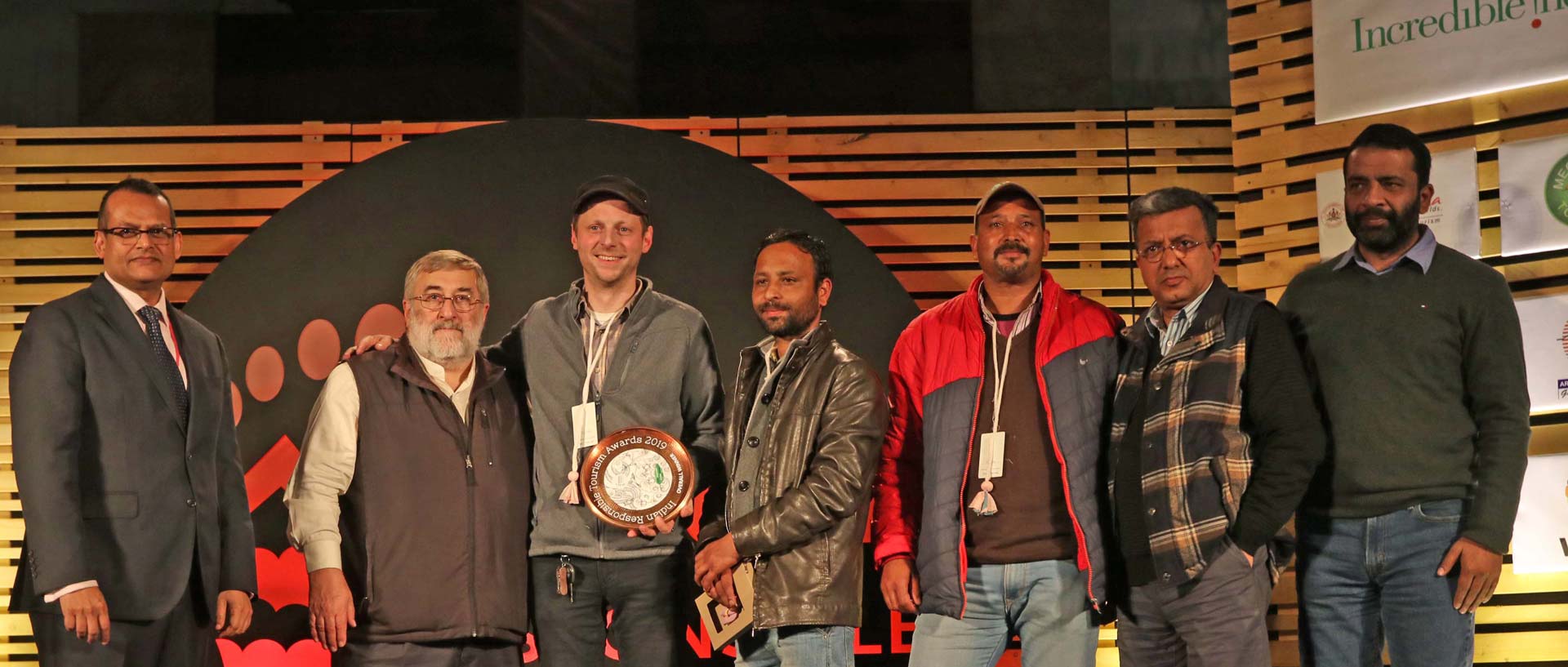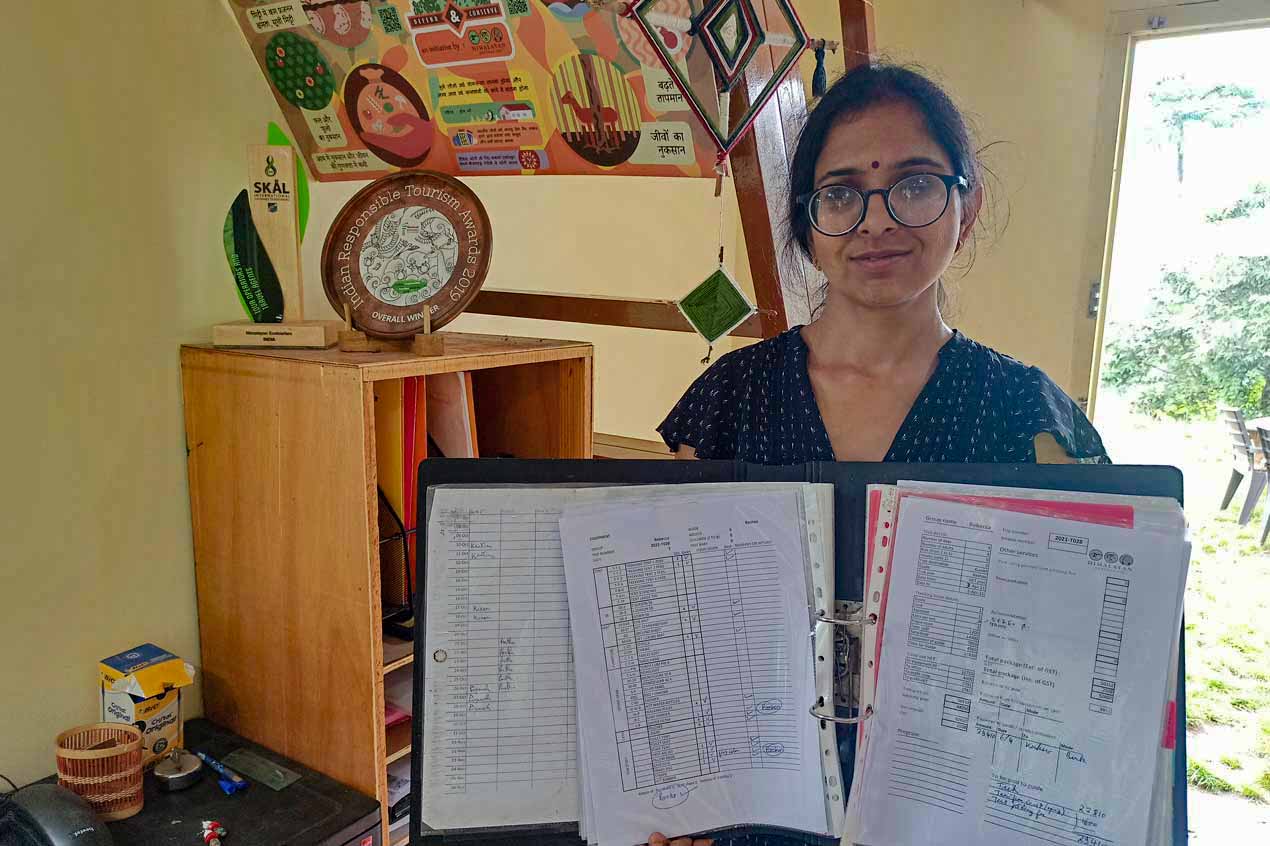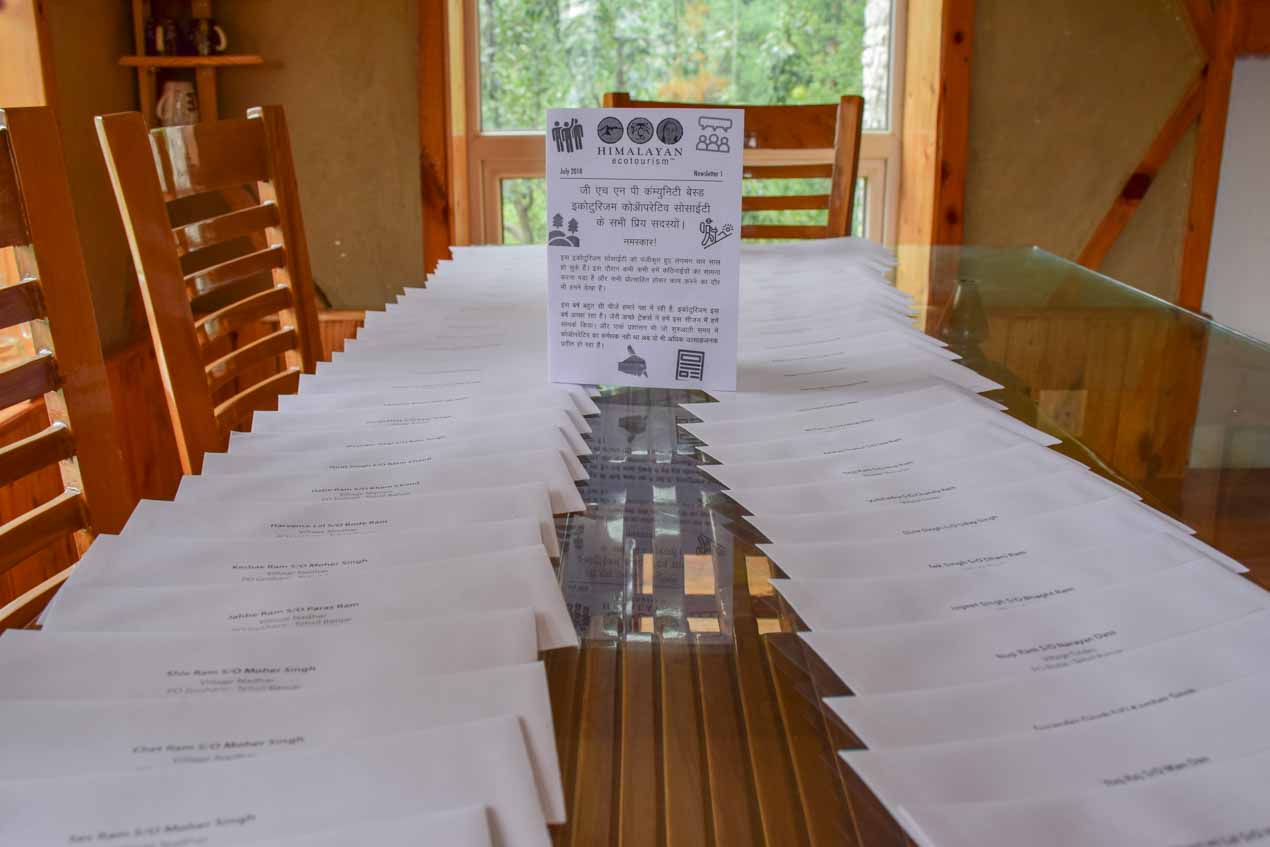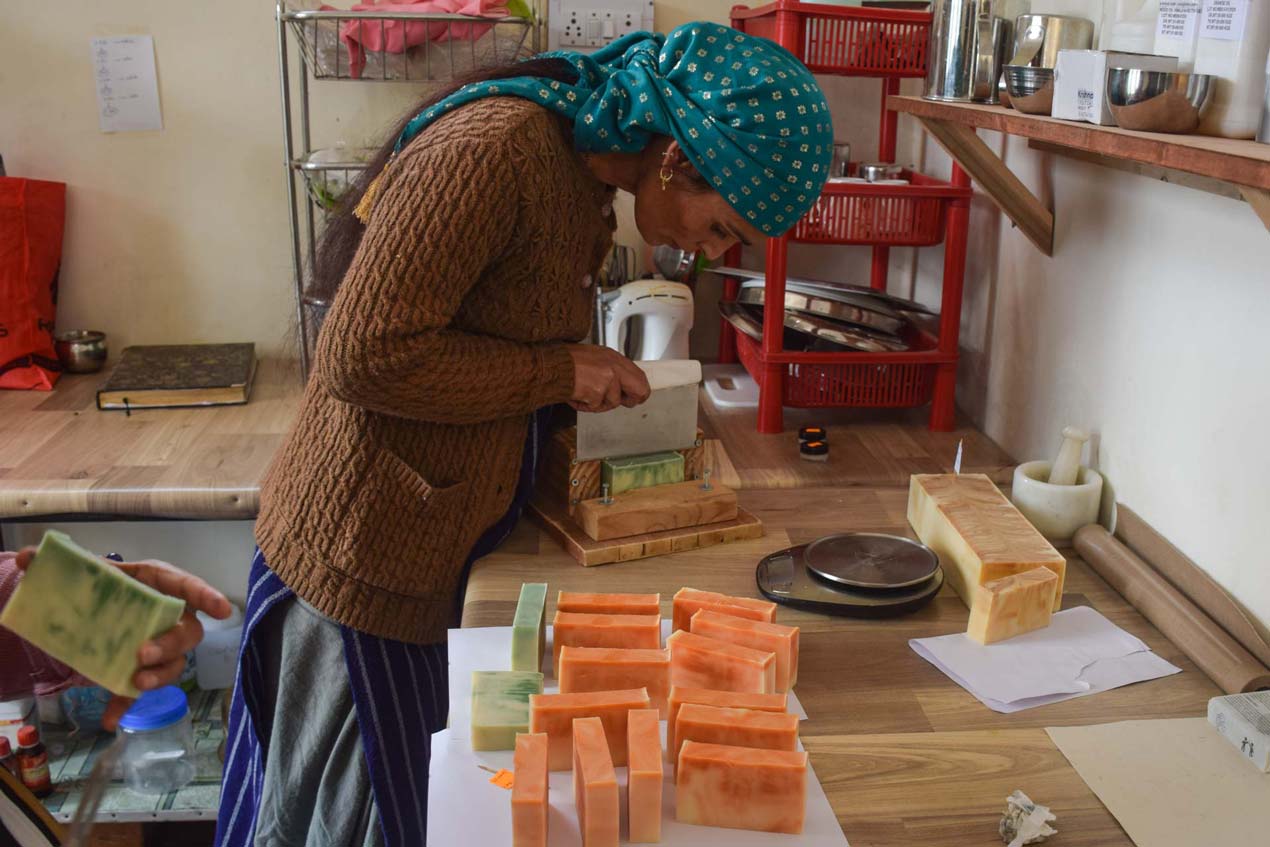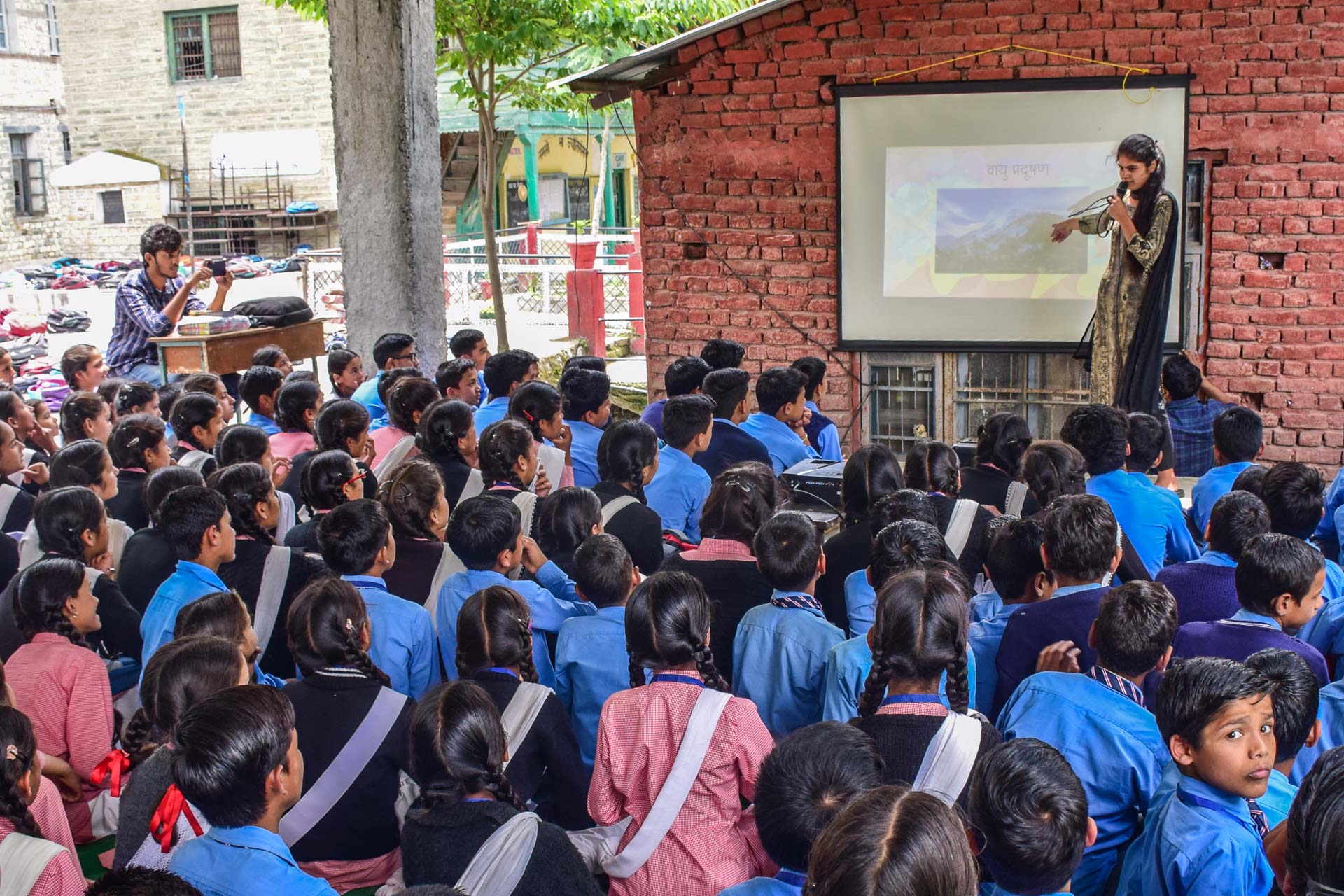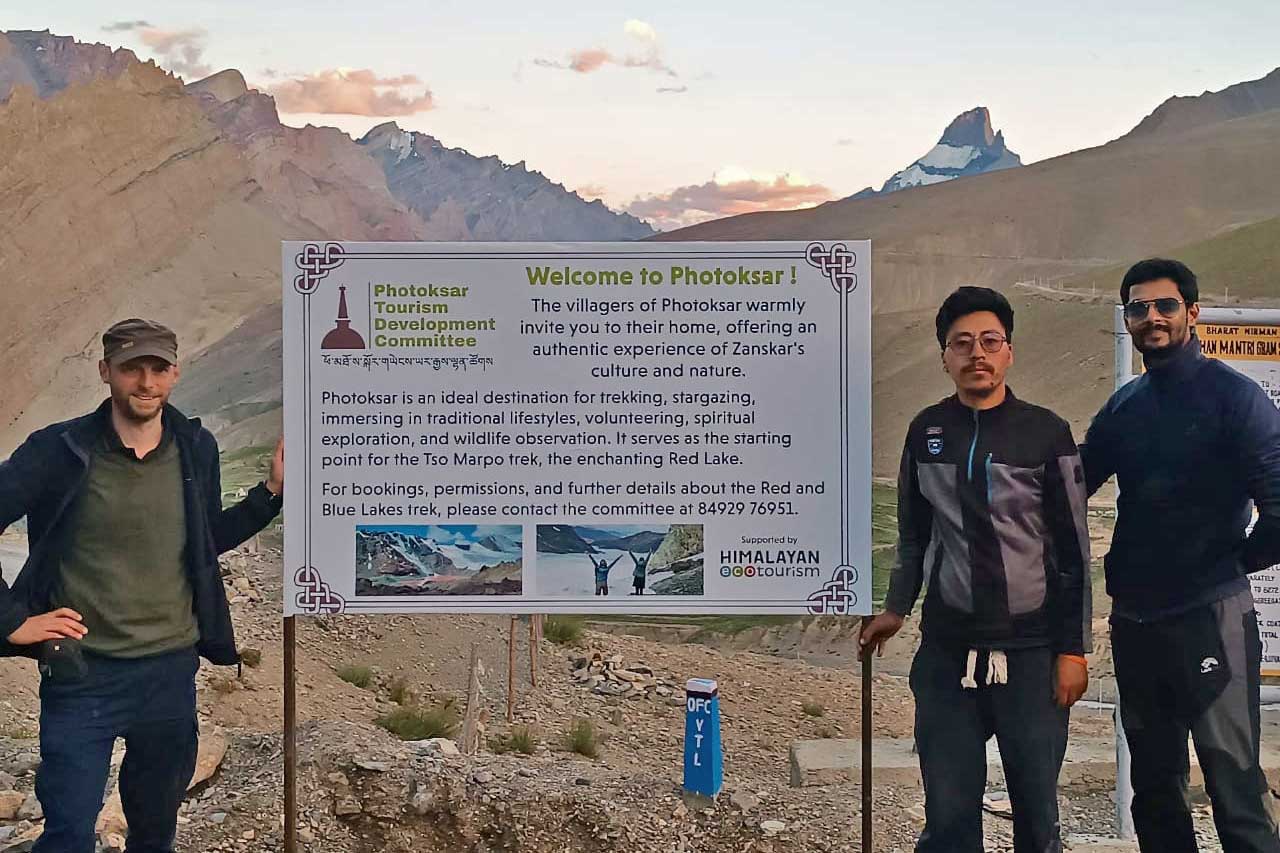A social enterprise in the Himalayas
Himalayan Ecotourism, a social movement that became an enterprise
How the “GHNP Community-Based Ecotourism Cooperative” and Himalayan Ecotourism were formed
The early 2000’s saw a huge boom in the tourism industry and many sensitive Himalayan regions were caught in the grasp of this unplanned, unexpected upsurge.
Another unfortunate outcome of this was the exploitation of the native communities by powerful market forces. The social, environmental and economic life in the valley was threatened.
A small group of sustainability and industry experts came together to reform this situation, starting with the Tirthan Valley, and encouraged the local villagers to organize under a cooperative to be able to reassess their power and hold the right to make decisions regarding a sustainable income source, their natural environment and social causes.
These were the conditions under which, in 2014, the GHNP Community-Based Ecotourism Cooperative, operating in the periphery of the amazing Great Himalayan National Park was formed. The intention was to provide employment opportunities through sustainable ecotourism to all the 65 registered members of the cooperative and support their families.
Soon after there was a need to register a sister organization, Himalayan Ecotourism, to assist the cooperative with marketing their venture, setting up a truly sustainable enterprise and building a strong clientele.
A social enterprise model that is symbiotic
“The man who can read in nature is the wisest of all”
While the origin of this quote is uncertain, it perfectly captures the philosophy behind how we run and develop our business. Our approach is guided by a few fundamental principles that shape our social enterprise model.
We believe that the success of any system hinges on its ability to establish and sustain symbiotic relationships with all the elements it interacts with. An enterprise should be viewed as such a system – a network of relationships that enhance the well-being of all human and natural elements involved. When an enterprise exploits its workers or harms the environment, it fails to maintain this symbiosis, which unfortunately characterizes many businesses today.
To operate symbiotically, an enterprise must adopt the right mindset.
Our journey began with the formation of the cooperative society, which forms the core of our enterprise model. This structure allows us to address the human aspect of our enterprise in a truly symbiotic way. Every member of our cooperative is a shareholder, making them not just owners but also stewards who are encouraged to think beyond their immediate interests to consider the broader impact on their community and the natural environment. They make decisions that influence not only their own lives but also the well-being of the environment and society as a whole.
In our tourism business, our connection to the natural environment is clear. Our guests join us to experience the beauty and tranquility of the Himalayas. This privilege creates a responsibility – a kind of debt to the environment – that we repay by dedicating a portion of our profits to conservation and regeneration projects.
And it works ! We have celebrated the 10 years of operation in 2014.
How to succeed as a social enterprise ?
Democratic decision-making and transparency
At Himalayan Ecotourism, every member of the cooperative has an equal voice in the business. They have the right to attend meetings, influence pricing based on market trends, understand finances, and vote on any decisions. This approach eliminates hierarchy, promotes transparency, and empowers villagers from the Tirthan Valley to be true stakeholders in a business they co-own and co-manage. This inclusive structure fosters accountability, responsibility, and honesty, which are essential traits in running a successful enterprise.
Respect for all our business associates
We deeply respect the labor and effort contributed by our members, ensuring that everyone works in dignified conditions. For instance, we enforce a strict limit of 21kg on the load carried by our trekking staff. There are many other steps that we take for the improvement of the working conditions of our drivers, guides and other service providers. These small yet significant measures reflect our commitment to ethical practices, proving that simple principles, when consistently upheld, build the foundation of a successful and ethical business.
Equal opportunity and fair business distribution
Himalayan Ecotourism operates on a roster system that provides equal opportunity for all cooperative members, ensuring fair distribution of business. We also consider client feedback, ranking guides accordingly. Experiences – both good and bad – are discussed in cooperative meetings, enabling everyone to learn and grow. This system encourages healthy competition, offering incentives without fostering negativity. As a social enterprise, this ensures that we deliver the highest standards and experiences for our clients, which is a key reason we’ve been recognized by some of the most credible names in the tourism industry.
Collective growth and community harmony
Our cooperative model not only eliminates unhealthy competition between neighbors but also promotes collective growth. A significant portion of our income is reinvested into the cooperative, ensuring that all members, as shareholders, benefit equally. This approach nurtures a sense of community and shared prosperity, helping the entire community grow together.
A workable model for sustainable social entrepreneurship
For about a decade, Himalayan Ecotourism has developed a workable model that other communities and organizations across the country can adopt. Our goal has always been to show that social and economic development can go hand in hand with environmental sustainability. We’ve demonstrated that it’s possible to run an ethical business that fosters growth and prosperity for all, without compromising the environment.
Heco – Better vision, larger goals
Introducing Heco : A continuation and expansion of our mission
Diversification and empowerment
Heco represents the natural evolution of our journey, beginning with Himalayan Ecotourism and expanding into new areas that align with our values. Our commitment to sustainability and social impact led us to establish “Himalayan Ecocreation”, a social enterprise run by a group of women in the Tirthan Valley. Recognizing the crucial role women play in supporting a sustainable society, we wanted to involve them more directly in our mission. Himalayan Ecocreation focuses on producing local products that are 100% natural, plastic-free, and beneficial for health. The women behind these products earn a good living, which aligns with our efforts to empower women and create sustainable livelihoods. This venture not only reinforces our commitment to social enterprise but also allows us to diversify from services into products, broadening the scope of our impact.
Sustaining social and conservation projects
During the pandemic, when Himalayan Ecotourism was temporarily halted, we sought ways to continue supporting our social and conservation initiatives. This led to the creation of “Himalayan Insight, an NGO dedicated to financing these critical projects. By establishing Himalayan Insight, we ensured the continuity of our mission, even in challenging times.
With three distinct entities – Himalayan Ecotourism, Himalayan Ecocreation, and Himalayan Insight – our organization grew more complex. To streamline and unify our operations, we introduced “Heco”, the umbrella organization that encompasses all three, ensuring coherence and a shared vision across all our endeavors.
Expansion : Reinventing tourism and involving women
Building on our success with Himalayan Ecotourism, Heco is now expanding beyond the state of Himachal Pradesh and diversifying its scope of work beyond trekking and travel. In Ladakh, we are “reinventing tourism” to benefit rural communities. This program focuses on sustainable tourism practices that uplift local economies while preserving the unique cultural and natural heritage of the region. For instance, we are working closely with Ladakhi villagers to create tourism experiences that are not only immersive for travelers but also economically beneficial for the local people, ensuring that tourism becomes a tool for development rather than exploitation.
Additionally, we have launched a women empowerment initiative in the Tirthan Valley, where we have trained and employed a team of women as trekking staff. This project has provided these women with new skills and income opportunities, breaking traditional gender roles and contributing to greater gender equality in the region.
The future of Heco : A global vision
The name “Heco” no longer includes “Himalaya,” reflecting our broader ambitions. We believe that the social enterprise model we have developed over the past decade can be replicated in any region, for any domain of work, and by any enterprise. Our future vision for Heco is to demonstrate that sustainable, socially responsible business practices can thrive anywhere, and we are committed to expanding our impact beyond the Himalayas, setting new standards for social enterprises globally.



